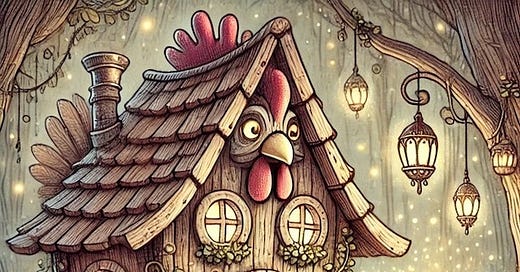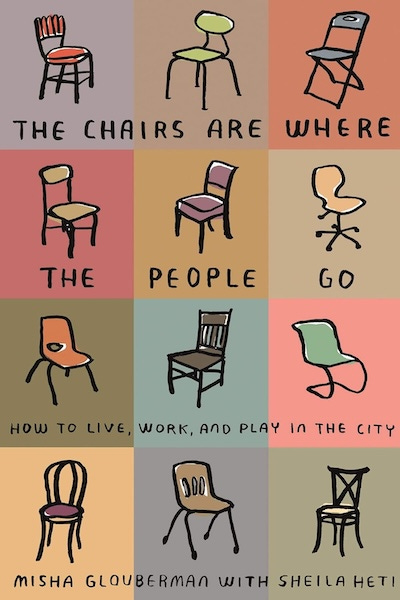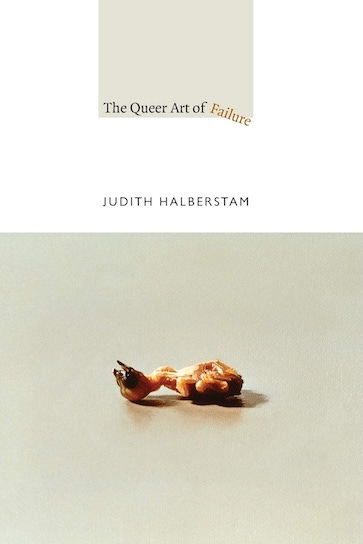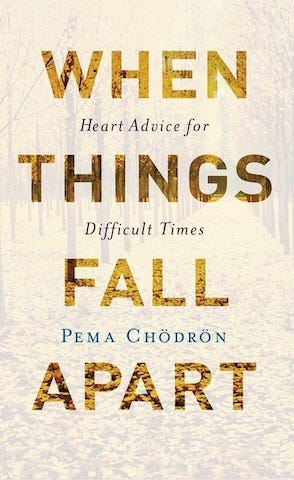This EELS is written by my friend and former colleague
. The best way to describe Sarah is “ray of sunshine if you expect your rays of sunshine to write super well.” So, in these uncertain times, who best to give us some books that could sort out our lives a little? Sarah, that’s who.If you like Sarah’s writing — and I bet you will — check out her Substack,
! I’d describe it as “essays about things Sarah realized about living life” and this one about how she decided to stop being anxious when a friend didn’t get back to her right away because probably, they like her just fine, has stuck with me like crazy. Seriously, I think about it all the time. Obviously everyone likes Sarah? This blew my mind. It’s wild to think that people you know have the same thoughts and fears you do. Anyway, subscribe! It’s good!👀 I have all my past EELS recommendations with links to all my past EELSes in one easy-to-scan spreadsheet! Click the button below, hit “request access,” and if you’re on the subscriber list, I will give you access! Pro tip: It is excellent for finding a gift. Falala!
🪑The Chairs Are Where the People Go: How to Live, Work, and Play in the City
Misha Glouberman and Sheila Heti, 2011
Probably the two things I enjoy most in this world are building community and finding what’s important in seemingly unimportant stuff, and there’s no book that’s surprised and delighted me more on these subjects than this compilation of essays by Mischa Glouberman, a man who teaches improv and organizes a lot of events in Toronto, and his friend, the author Sheila Heti.
One essay is on how to be good at charades, a game that exasperates a lot of people and that Glouberman likes so much that he once taught a six-part class on it. “To learn to play charades, you have to learn to enjoy yourself while trying to communicate with people who don’t understand you and don’t know what you know,” he reflects, which sounds like the perfect challenge to me. In an essay on chair arrangements, he explains that you should never put tables and chairs up front toward the stage at a literary reading, because they take up too much space, and how interesting people find readings is directly correlated with how close they sit to the speakers.
Thinking about how to tackle all the problems in this world is overwhelming, but thinking about how to handle it when noisy bars open in your neighborhood and why it’s good to see your parents once a week is fun and moving and actually quite helpful. At one point when I was first reading this book I looked up Mischa Glouberman to see if he’s single, and I couldn’t tell. Now I checked again, and I still don’t know.
Recommended for: People who like games and/or the way George Saunders writes and thinks.
🔮 Poetic Remedies for Troubled Times: Ask Baba Yaga
Taisia Kitaiskaia, 2020
Whether I’m worrying about climate change, job-hunting, inequality, or whether I’ll be single forever — wow, so many cool things to think about — I find that one thing that reliably helps calm my roiling mind is the wisdom of Baba Yaga, an ancient witch in Slavic folklore as channeled via contemporary poet Taisia Kitaiskaia.
Baba Yaga is old and weird and lives in a magic hut with chicken legs, all of which gives her a refreshing, wide-angle lens on the problems that come with being alive. I first discovered her advice on the much-beloved (now defunct) women’s site The Hairpin, and I often keep this book out on my coffee table so that whenever I start existentially spiraling there’s a mischievous crone to lovingly scold and soothe me within easy reach. To one letter-writer facing sexism at work, Baba Yaga declares: “These flailing, angry hedgehogs will soon be slurped by the wolves of time. Rejoice!” I will, Baba; I do.
Recommended for: Fans of Heather Havrilesky and Cheryl Strayed; gleeful witches gathering mushrooms in the morning while it’s still dark.
🦊 The Queer Art of Failure
Jack Halberstam, 2011
This may be the book that’s most transformed the way I think, and I go back and read passages from it all the time. (I actually wondered if I should quote from it at my son’s baby naming ceremony a couple weeks ago, but wound up referencing it only in spirit.) Written by the queer theorist Jack Halberstam, it’s technically an academic book, but unlike a lot of critical theory it’s beautiful and easy to read and a lot of fun.
Halberstam uses movies like The Fantastic Mr. Fox, Little Miss Sunshine, and Dude, Where’s My Car to explore how freeing it can be to upend all the typical narratives we’re handed about success and failure. In this book, failure isn’t an inevitable stumble on the path to eventual triumph; it’s valuable in its own right, maybe permanent but nonetheless offering “more creative, more cooperative, more surprising ways of being in the world.”
What does success mean in mainstream society, anyway? Wealth, status, home ownership; marriage, kids, diplomas and certificates and trophies saying you worked hard and you’re great. Undoubtedly some of these things can be quite nice. But they can also serve to isolate the people who have them and elevate them above the people who don’t. Falling short, according to Halberstam, teaches us to understand the arbitrariness of the world and become open-hearted in our thoughts and actions. “In losing we will find another way of making meaning,” he promises, in which “no one gets left behind.”
Recommended for: I saw a woman wearing a jacket that said “The system don’t work” on the back the other day. I feel like she’d like it.
And now, a bonus recommendation
🎡 When Things Fall Apart — Pema Chödrön, 1996
Hi, Susan here! I’ve been wondering how to get this in an EELS since day one. It’s possible someone has told you to read this before with a shining look in their eyes, and that shining look disturbed you because you have seen a lot of cult documentaries on Netflix. That’s fair! But this is not that. It is a slim book on Buddhism that will take you ages to read because every paragraph will make you put the book down and go, “Oh, OK. This is me. This is everyone! I could just… do things a little differently. Think things a little differently! I could give myself a break! I could give everyone a break!” It’s hard work and it’s also easy work.
I am beyond glad my friend Anna gave this to me and that my brother Michael made me actually read it. It is the book I’ve given to more people than any other book. And I give a lot of books!
Recommended for: Everyone who is going through anything, which is everyone at some point. Maybe just go ahead and read it to get ahead of that.
That was the fifty-fourth EELS! If you liked it, please share it with a friend and like it by hitting the heart! It’ll help others find it and maybe they’ll like it, too. A very special thanks to the irrepressible
, who really knows how to get us all through a crisis, and me through a content desert.If you get this via email: send any questions, feedback, or thoughts about a book, by hitting reply.
If you read this on Substack: leave a comment!
📚 Sarah and Susan
I earn a small commission from books purchased on Bookshop.org through links from this post. Except for the link to Pema’s book — that one is straight to her foundation because she rules and you should buy the book directly from them. Fun fact, one time I ordered a copy from them to give to yet another person, and I was like “Oh no! I got the address wrong, please correct!” And they were like “No problem, keep the one you accidentally had sent to you and we’ll just send another out. Give it to someone else who could use it!” What!?











